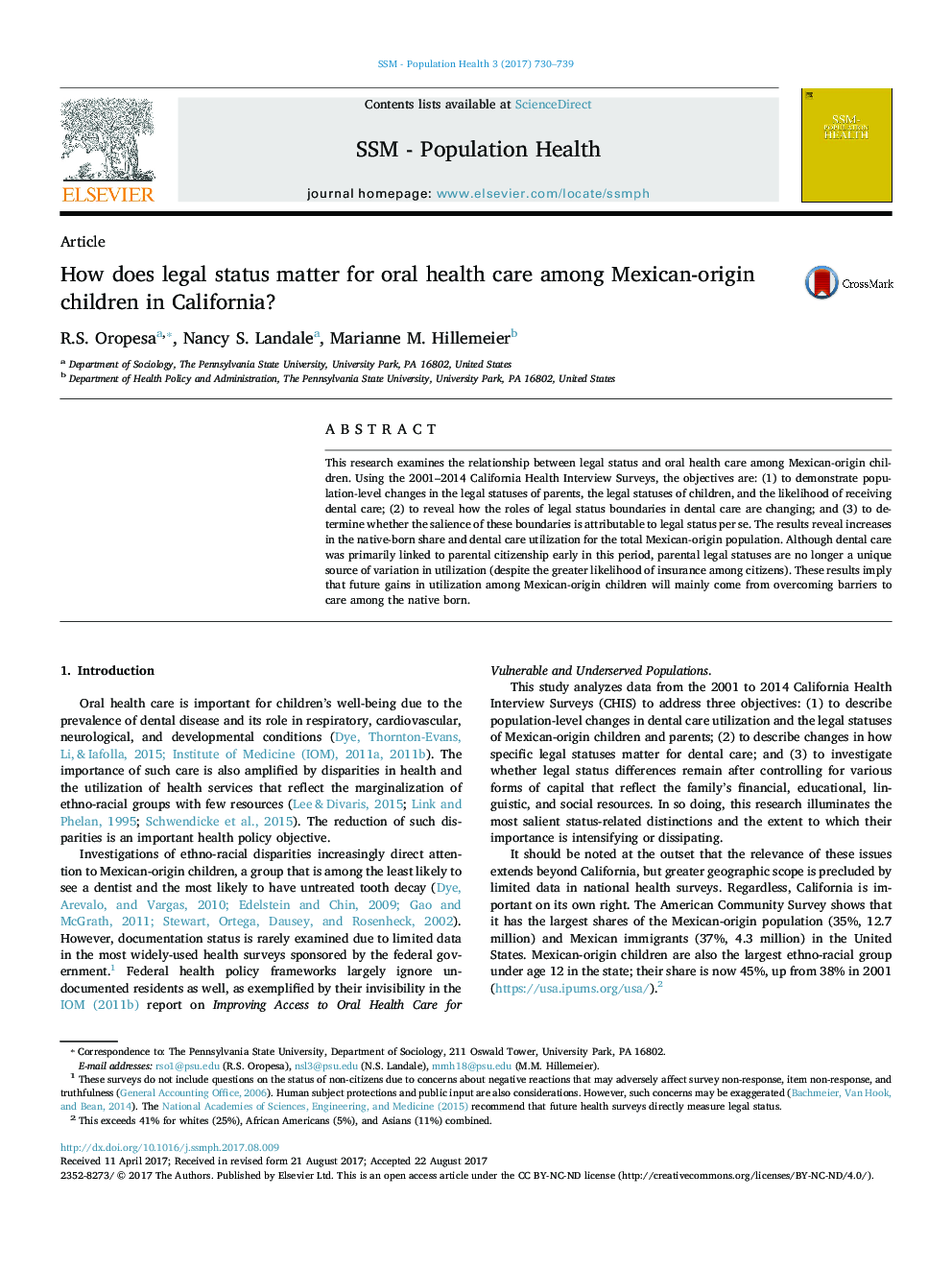| Article ID | Journal | Published Year | Pages | File Type |
|---|---|---|---|---|
| 5123306 | SSM - Population Health | 2017 | 10 Pages |
â¢Speculation exists on the importance of documentation status for dental care.â¢Parental documentation has not been uniquely important for dental care.â¢Parental citizenship predicted differences in child dental care in the early 2000s.â¢These differences subsequently decreased by 2014 when dental care rose for all children.â¢Increases were especially prominent among categories of non-citizens.â¢Declines in immigration imply that increasing attention to the native born is needed.
This research examines the relationship between legal status and oral health care among Mexican-origin children. Using the 2001-2014 California Health Interview Surveys, the objectives are: (1) to demonstrate population-level changes in the legal statuses of parents, the legal statuses of children, and the likelihood of receiving dental care; (2) to reveal how the roles of legal status boundaries in dental care are changing; and (3) to determine whether the salience of these boundaries is attributable to legal status per se. The results reveal increases in the native-born share and dental care utilization for the total Mexican-origin population. Although dental care was primarily linked to parental citizenship early in this period, parental legal statuses are no longer a unique source of variation in utilization (despite the greater likelihood of insurance among citizens). These results imply that future gains in utilization among Mexican-origin children will mainly come from overcoming barriers to care among the native born.
